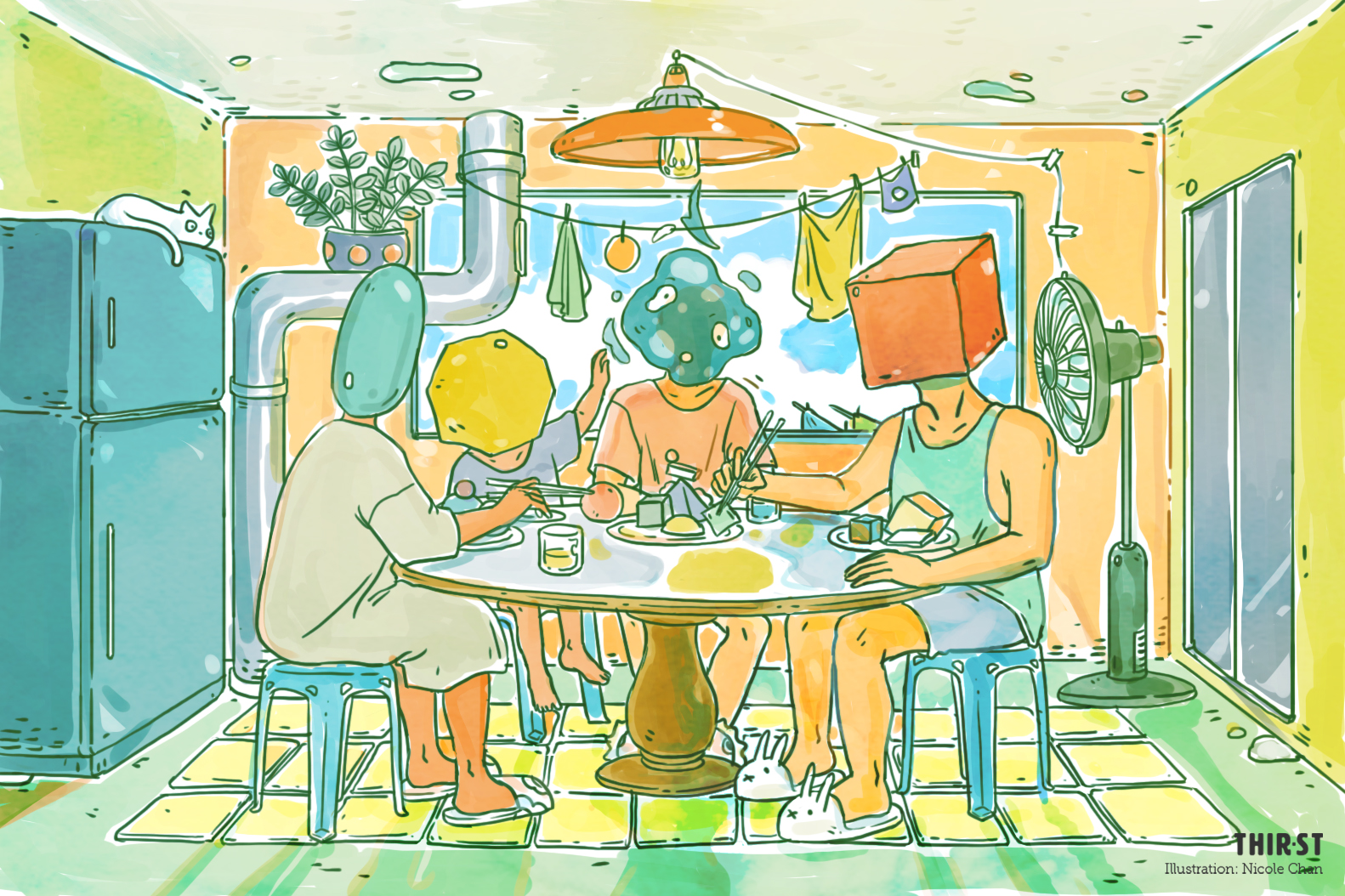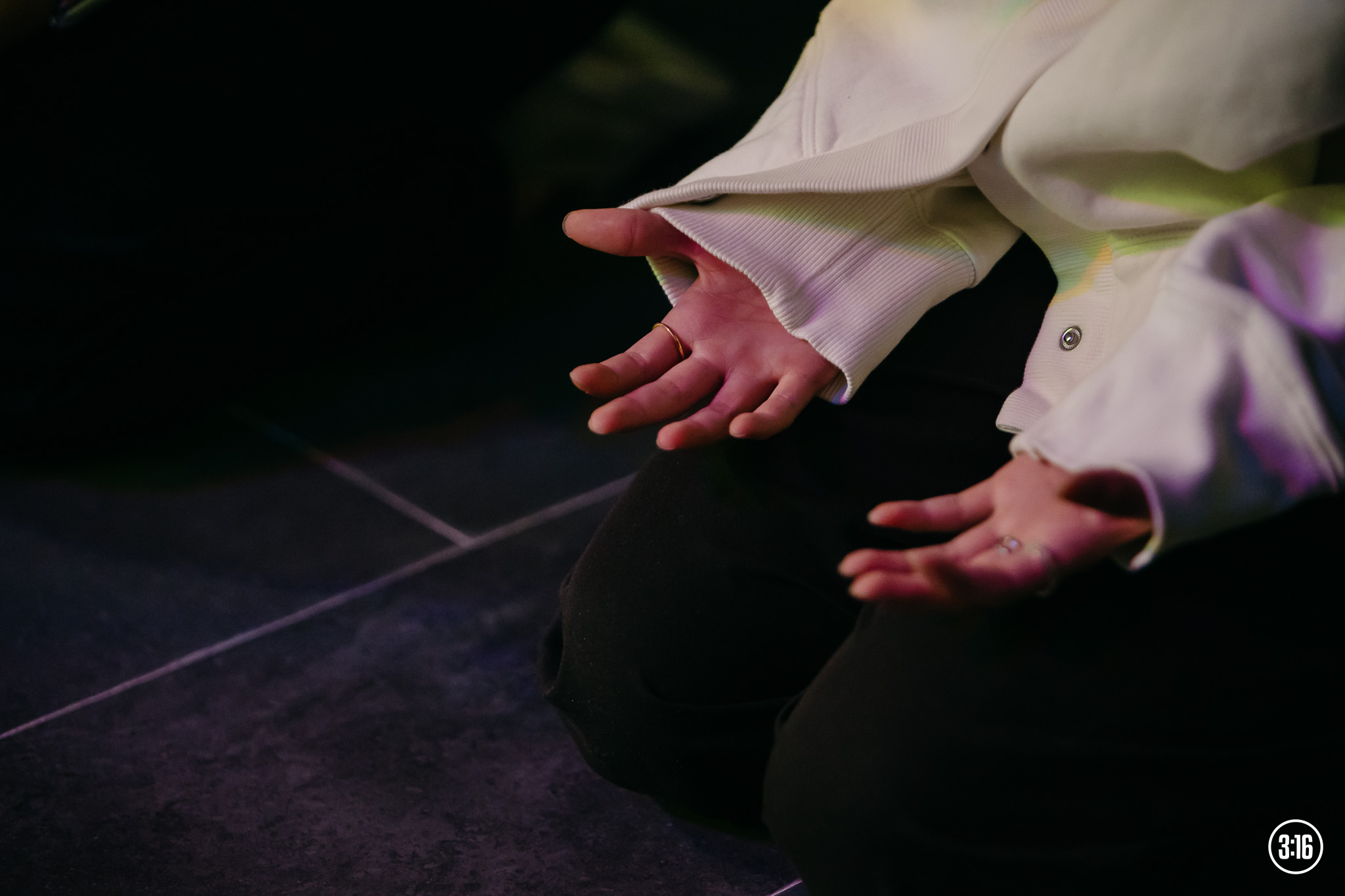Growing up, Abigail Lee struggled with revealing her true self to her family members.
“The expectation I had as a youth was that each time I showed my negative emotions and feelings, I would be ignored, scolded or get punished.
“My behaviour as a result of this was that I would only show positive feelings… and suppress, deny or imagine my negative emotions away,” she said, reflecting on her journey into adulthood during a recent webinar by Cru Singapore on Understanding How our Family of Origin has Shaped Us.
Now the President of the Association of Christian Counsellors (Singapore) and Executive Director of Healing Hearts Centre, Abigail has been able to gain a clearer picture of what she was actually going through at that time.
“In the past, I carried this belief that it was not safe to show my negative emotions,” she shared. “I ended up being a teenager and an adolescent with a lot of anxiety.”
Organised on July 28 as part of Cru’s monthly Tuesday Talks series, the 1.5 hour Zoom session came at a time when families have spent prolonged time at home after the 73-day circuit breaker and gradual reopening of schools and workplaces.
With such extensive interaction with close ones in a confined space, perhaps some of us have become more aware of the different emotions that we feel towards our family, or discovered new things about our parents that have caused us to reflect on how that has impacted who we are today.
WE INHERIT MORE THAN JUST A SURNAME
Abigail illustrated how our family of origin, or defined as our first family, shapes our lives in three ways.
The first is our biological selves: Our genes are inherited from our family of origin, which thus impacts our physical condition (e.g. height) and personality traits (e.g. introversion). It could also predispose us to certain mental or physical illnesses.
The second is how it influences our emotions and experiences. Our experiences with our family of origin shape the way we feel. This, in turn, shapes the way we express our emotions and how we process the impact of our life experiences like our struggles and victories, she explained.
The third is our beliefs, which affects our behaviour. This refers to the way we think about others, God, ourselves and the world in general as well as how we end up conducting our lives or forming certain habits or disciplines.
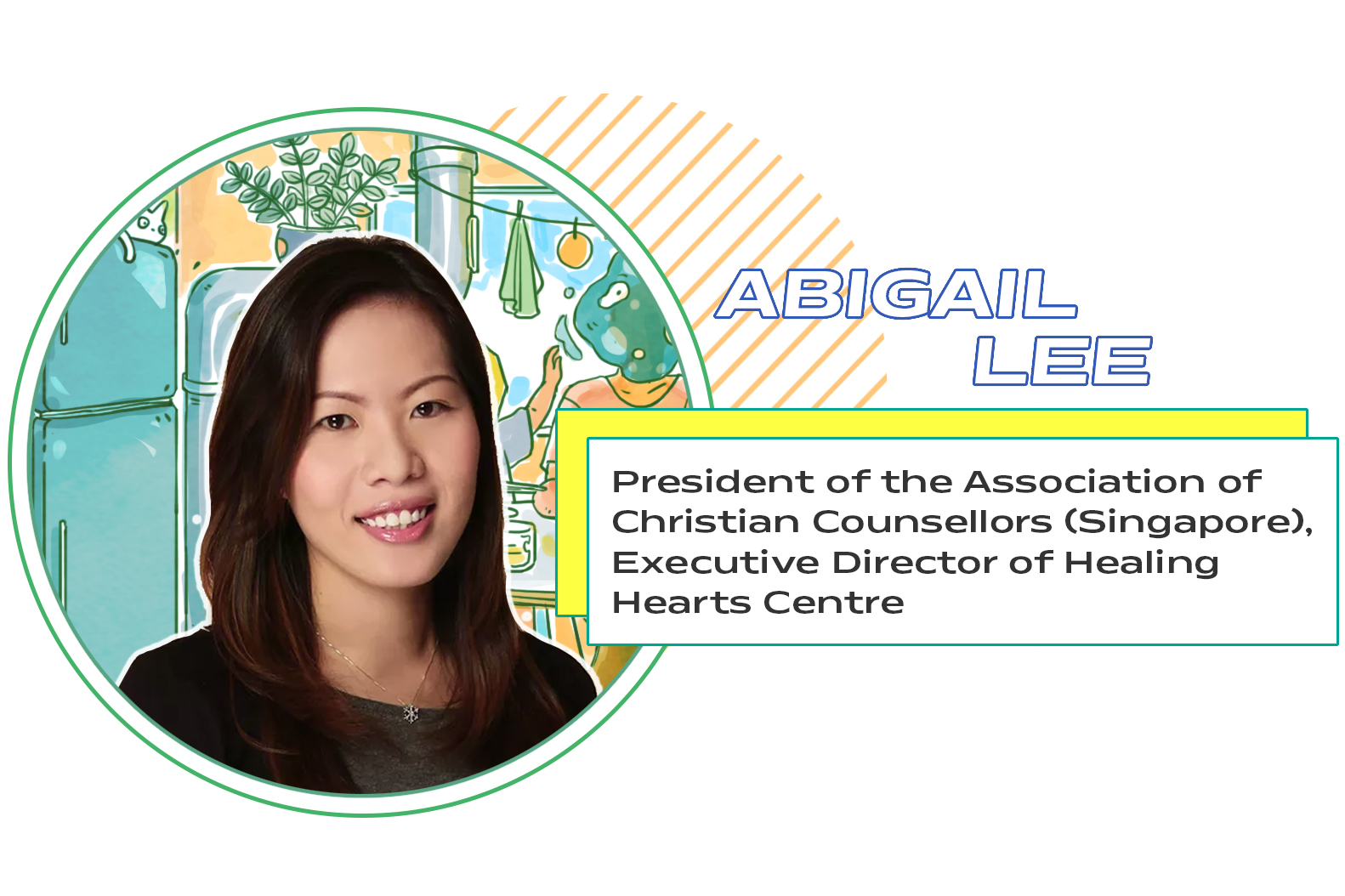
Tracing her own family of origin, Abigail shared how her paternal grandparents had grown up thinking it was wrong to show emotions of any kind. As their family was more focused on making ends meet and experienced a lot of hardship during that time, her grandparents were often punished for showing their emotions.
As a result of their environment, they cultivated a stoic behaviour and were not very open in communicating with each other. This, in turn, affected their parenting style towards Abigail’s parents.
Sharing how her father was similarly punished for showing his feelings while growing up, this led him to only display positive emotions. This experience ended up influencing Abigail’s own upbringing, passing on the generational belief that she would be treated harshly if she showed negative emotions or feelings at home.
Illustrating how this forms a belief-expectations cycle, Abigail referred to a model adapted from Restoring the Foundations founders Chester and Betsy Kylstra.
She explained that the cycle starts from how our experiences in life cause us to form certain beliefs. As a result of those beliefs, we form expectations.
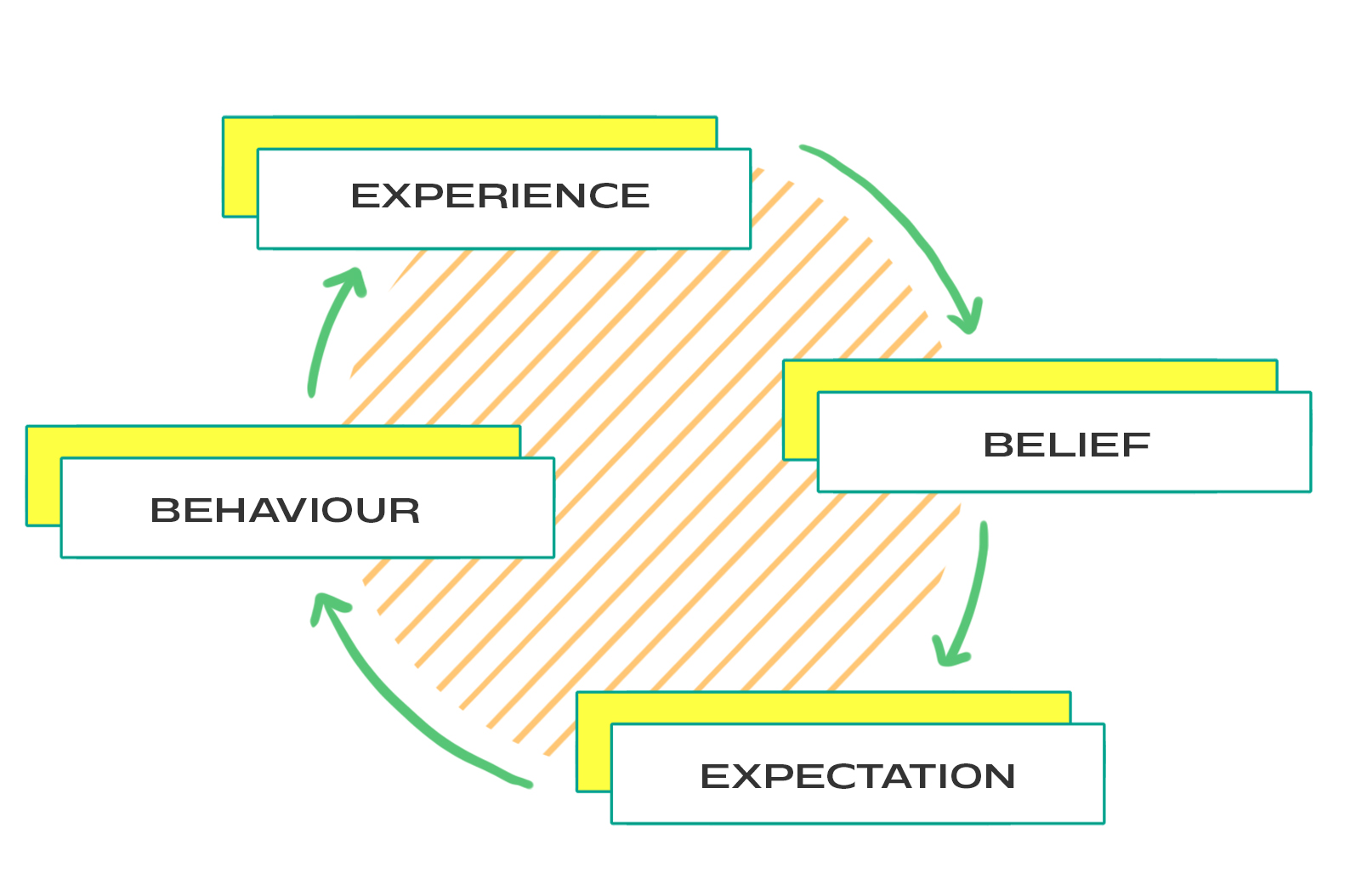
Abigail said: “We then assume our beliefs to be the reality because if we have experienced it repeatedly then it should be the case for everyone and for everything.
“We then brace ourselves to be more prepared in case it happens again, and so we behave in a way that ends up creating pretty much the perfect environment for the same or similar experience to happen again, thereby reinforcing the beliefs.”
HOW DOES KNOWING THIS HELP US?
Abigail shared that negative emotions may arise from such cycles, especially when the ongoing COVID-19 pandemic can add more stress.
To keep our emotions in check, we can start by identifying our stressors.
“Know what bothers you and sets you off into an anxious or worried state. If you have a difficult time identifying that, the best people to ask are your family members,” she said.
“Learn to express and release any negative emotions… Experiencing emotions of anxiety or low moods is not necessarily bad. It’s an indication of letting us know the current state we’re in.
“What’s challenging is if we remain in an extended period of time experiencing that without feeling like we have any way out. That’s when it becomes a huge red flag we need to pay attention to.”
Abigail was later joined by Deputy Senior Pastor Chua Seng Lee of Bethesda Bedok-Tampines Church during the webinar, who also offered practical tips on how we can care for ourselves and experience healing.
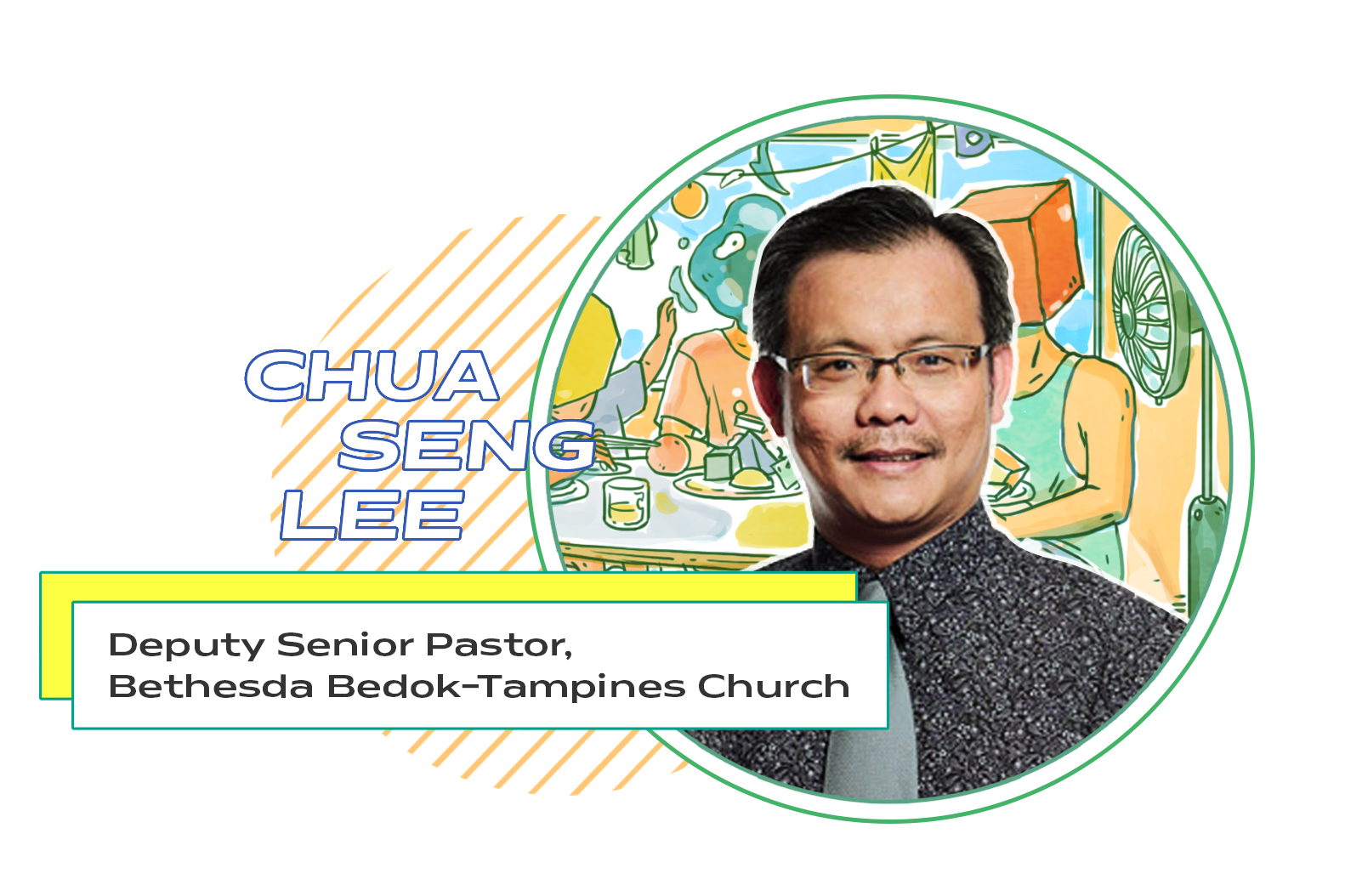
Citing 1 Thessalonians 5:23, Ps Seng Lee said caring for ourselves involves looking after our body, soul and spirit.
“If we ignore any one of these, it can limit the effectiveness of healing for a person,” he shared, pointing out that physical and medical, social and spiritual approaches are all important.
CARING FOR OUR BODY
“Our body is a temple of the Holy Spirit (1 Corinthians 6:19),” said Ps Seng Lee, “therefore we need to care for this body as our worship to God.”
Some simple things we can do include having adequate rest, eating properly and making time to interact with friends and family. When we talk and bond with someone, our body releases more oxytocin, a hormone that makes us feel connected to the person.
Establishing routines can also mitigate anxiety, added Abigail. This can include having a healthy lifestyle and ensuring intake of nutritious food.
CARING FOR OUR SOUL
Ps Seng Lee highlighted the importance of thinking right, as that has a huge impact on our emotional well-being.
He said: “How we think affects our feelings. We can see the same things, but how we think of it can make us either happy or sad… We may find that sometimes, anxiety just creeps in or we just feel uncomfortable because something is going on in our mind.”
He reminded us of what Romans 12:1 says, that we need to present our bodies – including our minds – as a living and holy sacrifice.
“This means we need to guard ourselves against the conforming pressure of the world, such as fears of COVID-19, the future of jobs and the darkness that surrounds us. If we join the world to worry about all these things, anxiety and fear will just compound itself on us,” he said.
We can do so by being transformed by the renewing our minds (Romans 12:2).
“We need to change our worldly thinking to one that is godly and spiritual,” added Ps Seng Lee, suggesting that we dwell on the good things that Philippians 4:8 describes.
Earlier, Abigail had also recommended that we take care of our emotions by protecting our “me time” and “me spaces”.
She said: “Allow yourself to have moments where you can just be on your own, to feel safe and have devotional times with the Lord.
“Get in touch with yourself to understand what you’re feeling and thinking. Create a ‘me space’ where you can just enjoy the space you’re in without feeling as if others are intruding.”
CARING FOR OUR SPIRIT
This is the third aspect raised by Ps Seng Lee. As Christians, we can do this through repentance and worship, he said.
“Isaiah 30:15 says that the people of old were not willing to repent and rest in God. They were not willing to have quietness and trust, so as a result, they paid a price. But we can learn from them. One of the ways for us to take care of our spirit is to come before the Lord.
“If there is sin in our lives, we need to repent and rest in the presence of God. Because in quietness and trust, we will find our strength.”
The second way is worshipping God afresh. Ps Seng Lee reminded us that when we’re in God’s presence, we will be filled with joy and eternal pleasure (Psalm 16:11).
“I want to encourage us that as we take care of our spirit man, there can be deep healing, more than we realise,” he said, sharing a personal example.
“A friend of mine had depression, but she needed to go on a work trip to America. She went to church there, and in that service they had extended worship for one hour. In the midst of worship, she suddenly felt something lifted up.
“The depression that she was carrying left her as she worshipped the Lord and stayed in the presence of God. When she returned home and saw her doctor, she discovered that she no longer needed medication because she was completely set free.”
Finally, it’s helpful to recognise that caring for our body, soul and spirit need not be a journey we take on our own. After all, the Church is called to be a healing community, a safe place where we can journey towards healing together.
Explaining that it must first start with us listening to one another and showing empathy, Ps Seng Lee pointed out that godly support is crucial.
“Sometimes we have this wrong thinking that tells us only the weak ask for help. That’s not true because it actually takes a lot of courage to seek help and admit that we have an issue,” he said.
In situations where a person feels that it’s beyond their ability to help, they can make referrals as there are many good resources where help is available.
However, Ps Seng Lee also reminded everyone that ultimately, it’s important to know our limitations.
He said: “We need to recognise that we are limited. We are not God. He never called us to be a messiah to somebody – only Jesus is our messiah.
“That’s why we need to draw healthy boundaries because we can only take care of others when we first learn how to take care of ourselves.”
If you are a youth or young adult who is struggling with mental health, Cru Singapore has a ministry that offers coaching and counselling services for emotional wellness and resilience. Find out more about ThriveSg.
- What are some beliefs and expectations that your family of origin might have played in a role in shaping?
- Which of these areas of self-care do you need to put more focus on?
- Are you struggling with any negative emotions that you have been silently shouldering alone? Who can you approach for support?


